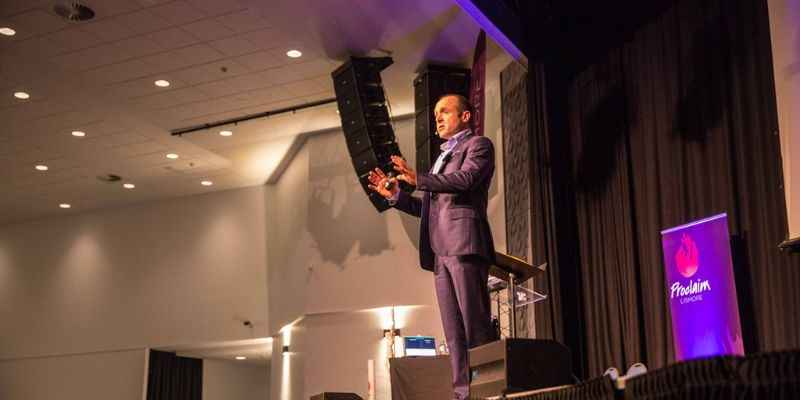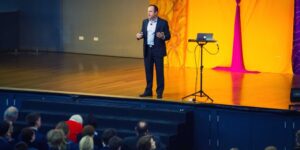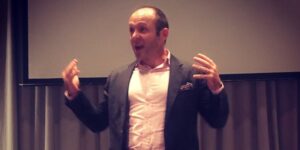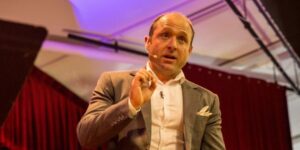Welcome to the Catholic Teacher Daily Podcast, where courage and Catholic education intersect in today’s challenging landscape. Join Jonathan Doyle as he explores the importance of courage in upholding Catholic principles and empowering educators in an era of challenge. Through real-life examples and insightful discussions, discover strategies for courageous leadership and embracing the truth in education. Let’s embark on a journey of faith, courage, and empowerment together.
Welcome Aboard: Your Daily Guide for Catholic Educators
Hey, there, everybody. Jonathan Doyle is with you. Welcome aboard to the Catholic Teacher Daily Podcast. There are two things you need to know about this podcast. One, it’s for Catholics, Catholic educators. Two, it’s daily, at least five days a week and when I do get a break. I love you guys. But I do go surfing on Saturdays, but I think about you sometimes while I’m surfing. Anyway that’s neither here nor there.
Are you ready? Housekeeping, please make sure you have subscribed to this podcast. It makes a huge difference. As I have said before, angels weep souls in purgatory and are let into heaven every single time one of you subscribes. I don’t know how I can prove that to you. But I read it somewhere. It’s in the catechism at the back. Now, what else? Everything else is on the website: jonathandoyle.co. If you want to come and say good day on social media. You can find me on Instagram @jdoylespeaks.
The Vital Role of Courage in Catholic Education: Insights and Strategies
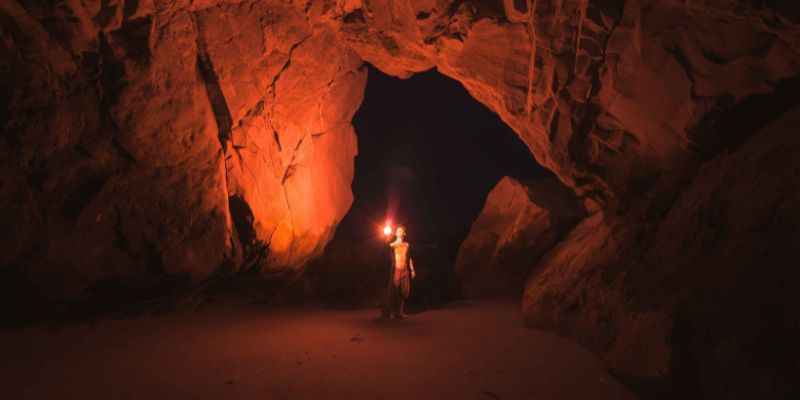
Today, my friend, I have a really quick and challenging message for us. I always asked the Holy Spirit to give me content for each day. I got to be careful saying that because if I do a really poor episode, I get to blame the Holy Spirit. It’s really good. I still get to be attributed to the Holy Spirit. Today we’re going to hear from Pope Leo XIII. I’m going to share this quote with you and how it relates to Catholic education. He says,
“Nothing emboldens the wicked so greatly as the lack of courage on the part of the good.”
Pope Leo XIII Tweet
So this morning, some of you may know I’m training for an ultramarathon at the moment. And I was on a long run, and I was listening to a fascinating short discussion on YouTube from Gavin Ashenden. He’s a convert to the Catholic faith and a brilliant intellectual. And I’m pretty sure that at some point he was a private chaplain to Queen Elizabeth II. So if you have access to YouTube, do a search for Gavin Ashenden.
He was talking this morning about something that some of you may have seen, which was violent protests at Manchester University in the UK. Where a mob descended upon some pro-life people who I think simply had some kind of what they call market days, or where people put out different booths for different university things and it turned into this rabid mob that was verbally and physically, aggressive to these pro-life people.
Ashenden just does a fascinating take on the kind of sociological, psychological, and then spiritual dimensions of that attack. It’s really quite a great presentation, and it leads me to Pope Leo today. Nothing emboldens the wicked so greatly as the lack of courage on the part of the good.
Real-Life Examples: Demonstrating Courage in Today's Educational Landscape

Many years ago, I was sitting at a meeting with a fascinating human being who had then at the very highest levels of military special forces. And had seen a great deal of combat and led a great deal of people. He was a real character and somebody that I got to know quite well over quite a few years. We were having this conversation, a few of us, about a difficult issue that we were beginning to address because he’d become a Christian and a very active one.
He was using these gifts that he’d been given—these charisms that he’d been given—of leadership and encouraging different things to really make an impact. And we’re talking about this difficult issue, and it was early in our career and our business ministry. We were talking about strategy. I remember saying to him, we’re very cautious about putting our heads over the trenches. We were new to what we were doing, and we didn’t want to attract too much negative attention, and it just came out of my mouth. And we don’t want to put a head over the trenches.
Breaking Through Reticence: Addressing Challenges and Seizing Opportunities
I remember him laughing out loud, saying, Oh, you guys, you laugh. Everyone says that he goes; it looks like it’s just me sticking my head over the trench. And it really struck me because I thought he was right. I wanted comfort, I wanted to be sensible. We use these kinds of words, don’t we? But you want to be sensible and this quite a bit of writing about how people who are orthodox and people who are politically conservative tend to be, not always, but tend to be more reticent in really standing up for the things that they say they believe.
I think it’s got something to do with the kind of ingrained politeness that, that often, if you’re of an orthodox or conservative faith or political bent, you tend to want to be nice about things and you don’t want too much conflict. And I get it, it’s human. I don’t know if you disagree; you might think I’m absolutely crazy here, but that has been my observation for many years. But I think we’re getting to the pointy end of history at the moment.
This quote here says that nothing emboldens the wicked so greatly as the lack of courage on the part of the good, is an important point. Now, courage doesn’t mean aggression, and courage doesn’t have to mean. being vitriolic and mean. Courage might mean simply making a complaint or making your point, intelligently, calmly but consistently.
Upholding Catholic Principles: Strategies for Courageous Leadership in Education
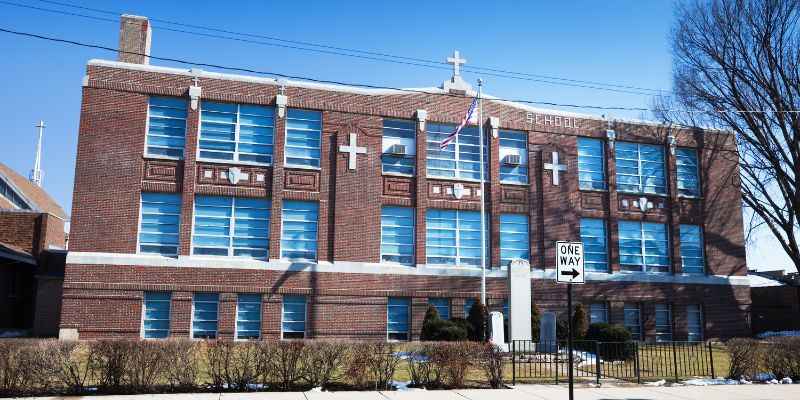
You are as well aware as I am of the currents that have impacted Catholic education since the second Vatican Council. We could probably say earlier, but there are all sorts of strange ideas and ideologies entering into the delivery of Catholic education.
I remember one of my kids was being asked to develop a whole bunch of stuff on the United Nations, sustainable development goals. Now we are not going down that rabbit hole, but should you be interested, I can provide you with a plethora of data about what a seismic train wreck actually is. How it benefits a small number of extremely wealthy entities, but we’re not going down that rabbit hole. See how disciplined I am.
What struck me at the time was, when I first heard about it going on, Why? What about getting a case? What about the sacramental life? I know some of you might be pushing back when you think about schools that don’t do pure religious education. I understand that. But I think if we were both being honest, we would agree that Catholic education, not everywhere, but in a significant number of places has been in the teaching of the faith and the transmission of the faith. Has been impinged upon by all sorts of strange quasi-marxist ideologies of different forms.
I wonder if our lack of courage on our part has led to a kind of acquiescence, that has led to a kind of sense of no one’s really complaining. I think if you’ve been in this space before, you’ll realize that once you tie your colors to the mast. It is not a pleasant place. You will be pigeonholed, you will be seen as reactionary.
The Intersection of Courage and Truth in Catholic Leadership
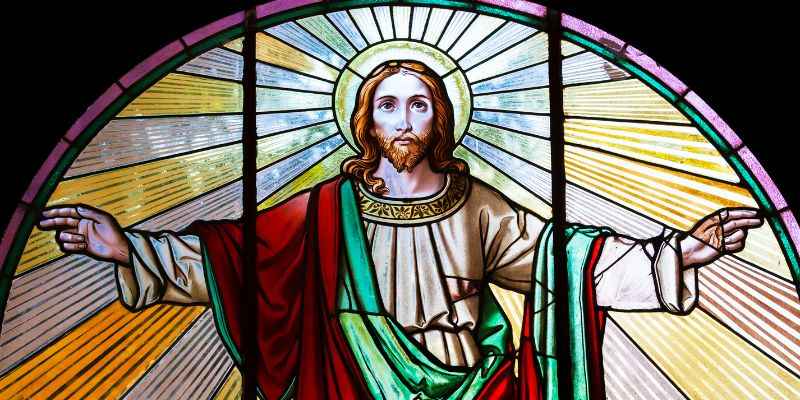
A member of the temple police is one that I often hear, hang on, what you’re saying isn’t Catholic. You’re not teaching something. We can’t do that because it’s not possible, it’s not in the catechism, it’s not in the magisterium. We don’t actually believe that as a faith. You’re a Pharisee. It is about love. Absolutely. But love is very jumbled too. We’re so good on this. Love’s got an incredibly strong relationship with the truth. You can only love something if you understand what it really is, the very strong nexus between love and truth.
What I am trying to say is: Come back to that idea of tying our colors to the mast. At what point would we be prepared to stand up to this era, to apostasy, to the leading astray of young people with doctrine or ideologies that are not Christian? Sometimes people say you really want to die on this hill. Well I don’t want to die, but sooner or later, there’s got to be a reason. You can’t just keep saying not this hill. At what point would it begin to say, this is wrong, this is not right.
Is it not true that many of the greatest men and women have crossed that threshold? In the biblical sense, we talk about the fear of man and the fear of God. We’re very sensitized to the fear of man at this moment in history. Fear is a very powerful tool. We value social connectedness too, we value our colleagues, the teachers that we work with, and the leadership that we work under; we don’t want to damage any of that. But we have to remember that our allegiance is not ultimately to people. It’s not ultimately to our own comfort. Our allegiance is to Christ and to the church he established, to the church that he promised never to leave.
Embracing Courage and Prudence in Speaking Truth
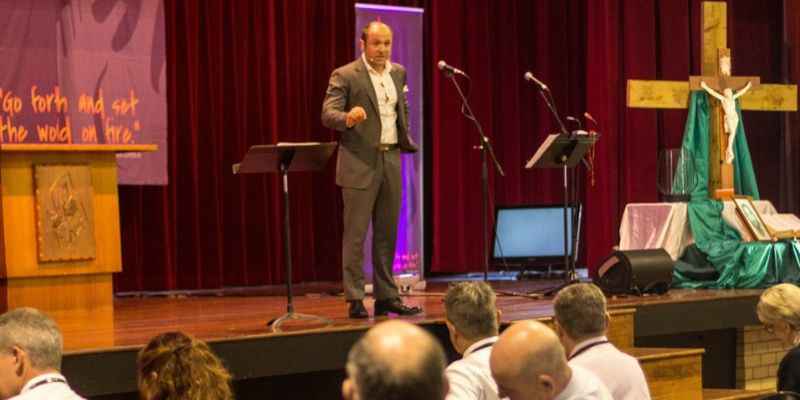
So once again, nothing emboldens the wicked so greatly as the lack of courage on the part of the good. I guess the question for us all is: What is our preference here? Would we prefer to embolden the wicked? Or would we prefer to find our courage?
Because you have to understand friends. Wickedness is a thing. It’s actually a thing, there are wicked people who desire evil. I’m not saying that’s everybody that introduces a wacky curriculum idea into your score. It’s not that, I’m not saying everybody would get; I’m just saying that we need to, if I could be so bold, we need to put our grownup pants on. And realize that there are people who are deeply inimical to the faith. And they will be emboldened and have been emboldened by a consistent lack of courage on our part.
So the first thing we do is pray for the grace of courage, right? It’s not about Neo-pelagianism, it’s not about just toughening it up, it’s about asking for the grace of courage. In fact, next week I’m on a speaking tour, and I will be addressing the relationship between the Cardinal virtues and senior Catholic leadership. I’ll be helping senior Catholic leaders understand that prudence, justice, temperance, and fortitude, courage are central to humans in the development of the human person and the Christian life.
Conclusion: Finding Strength in Courage for the Journey
I’m going to stop there. Let’s find our courage, let’s pray for the grace of courage, but also the grace of prudence, so that when we speak, you see what I did then? I said, We speak our truth. Now we speak the truth. We are not speaking just something that we’ve decided to come up with on our own. We are speaking the truth as revealed through Holy Mother Church. I just said those words because I believe it. Christ established a church and promised never to leave it.
God bless you. My friends, my name is Jonathan Doyle. This has been the Catholic Teacher Daily Podcast. If you are mildly traumatized by this idea, I am not even going to say sorry, I’m just not going to say it. I’d love for you to share this with people. I’d love for you to subscribe. You can go to the website: jonathandoyle.co, and message me. Instagram @jdoylespeaks. I love to know what you think.
God bless you. My name is Jonathan Doyle. This has been the Catholic Teacher Daily Podcast. You and I are going to talk again tomorrow.
